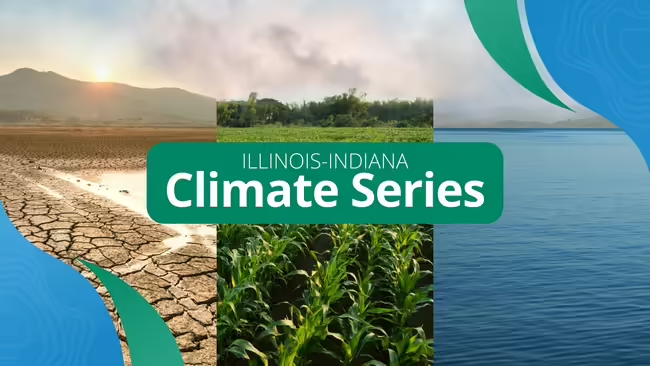
Want to ensure long-term profitability and sustainability?
Climate change has had significant impacts on agriculture in Illinois, including extreme weather impacts and challenges with integrated pest management. Impacts are projected to intensify with future warming, but solutions exist to both mitigate and adapt agriculture to climate change and its impacts. We'll discuss climate change, its impacts, and the important roles of soil and water conservation to improve long-term profit, sustainability, and resilience.
Presenter: Trent Ford, Illinois State Climatologist, University of Illinois Urbana-Champaign
If you will need an accommodation in order to participate, contact Duane Friend, friend@illinois.edu. Early requests are strongly encouraged to allow sufficient time to meet your access needs.
Illinois Indiana Climate Series
Each month, Illinois and Indiana Extension experts highlight important climate-related topics in these free online one-hour webinars.
- As you register, you must select the specific workshop you wish to attend from the drop-down menu.
- Want to attend more than 1? Complete a new registration for each session.
Check out these additional workshops:
Decision support tools and climate monitoring for agriculture | 1 PM • February 23
The Midwestern Regional Climate Center (MRCC) is the regional host for free, online historical and near real-time climate and weather monitoring. Utilizing data from federally-funded weather station networks, the MRCC has developed several tools and resources that may be useful and usable to the agricultural community for planning and risk assessment purposes. This presentation will highlight some key value-added products that were developed specifically for the agricultural stakeholders as well as provide an opportunity to learn more about the climate data and monitoring needs from the community that would benefit planning and yield.
Presenter: Beth Hall, Director, Midwest Regional Climate Center